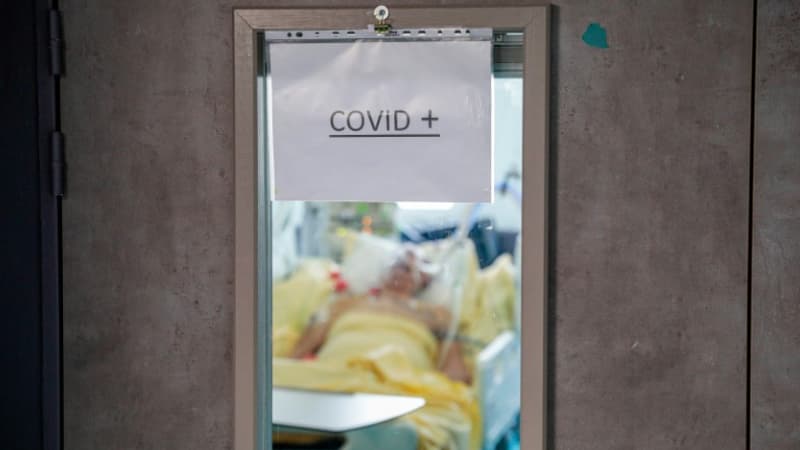More than three years after the start of the epidemic, post-Covid syndrome, commonly called long Covid, affects “several hundred thousand” people in France and care remains “unsatisfactory”, according to a diagnosis by Covars published on Wednesday. of which the government stressed his mobilization.
“It is essential that policymakers, health authorities and caregivers become aware of this problem because several hundred thousand people still suffer from PCS (post-covid syndrome) in their daily lives in France,” according to the advisory body, which sent an opinion to the government at the beginning of the week.
This order of magnitude allows “to show the impact” of the phenomenon, for which “it is very difficult to have a precise figure” because some patients are not diagnosed, said virologist Bruno Lina during a press conference.
“Social and economic repercussions”
Post-Covid syndrome, or long Covid, refers to the persistence of lasting consequences several months after infection with the virus. Although “scientific knowledge has progressed a lot,” there remain “lingering questions about the definition of PCS, its mechanisms, its diagnosis and its treatment,” says Covars.
But it is true that “this has consequences on individual and family trajectories, but also social and economic ones”, such as school dropouts, prolonged sick leave and resignations.
A “chaotic” care journey
If, after a while, “some patients are cured” of the post-Covid syndrome, with very diverse manifestations, the majority become “chronic” patients or retain certain “after-effects,” said Xavier Lescure, a specialist in infectious diseases and collaborator. pilot of the opinion, during the press conference.
However, care is “unsatisfactory to date, with a chaotic care path,” says Covars, who points out “a lack of clarity in the offer, great geographical heterogeneity, an often insufficient level of knowledge of health professionals and a tendency to psychiatristize symptoms, in a general context of medical shortages.
The need for status
Faced with “more satisfactory care in neighboring and Anglo-Saxon countries”, Covars calls for strengthening and restructuring the care system for post-Covid syndrome, which will be addressed “from the more general angle of post-infectious syndromes.”
In France, “the State has done a lot, but perhaps in a less coordinated way than in other countries and less efficient throughout the territory,” according to the president of Covars, Brigitte Autran.
“On the ground, there are places where it works very well (…) and in others not or poorly,” considered Xavier Lescure, seeing Canada as the “most interesting” foreign model, a mix of pragmatism and creativity.
Noting that “things have been very complicated for many patients for three and a half years”, Yvanie Caillé, patient representative and another co-pilot of the opinion, spoke of the “need to recognize their pathology” and highlighted the associated difficulties to “the absence (of status) of long-term illness.”
A recommended communication plan
Covars proposes, among other things, “adapted, financed and sustainable sectors in the territory, to guarantee, in particular, multidisciplinary, clinical, physical, psychological and social care”, also combining occupational and school medicine.
Covars also calls for “a clear, reassuring, rational and science-based communication plan to raise awareness among caregivers, patients and the general public about PCS as a real post-infectious threat.” It also recommends “focusing attention” on long Covid in certain children and adolescents, or “amplifying and expanding the French research effort, in a sustainable way.”
Especially because “in a context of climate change”, there is a risk of “more and more infectious pathologies emerging, many of which will probably give rise to post-infectious syndromes”, warned Brigitte Autran.
A new committee in early 2024
The Ministry of Health assures that it has been “mobilized since the beginning of the epidemic to provide a response adapted to the needs of the affected people, reduce medical wandering, facilitate and harmonize the organization of assistance”, particularly through the agencies regional health services. authorities.
Aurélien Rousseau, who spoke on Tuesday with Brigitte Autran, will assemble a new committee in early 2024 in charge of following the various actions, once the recommendations of the High Health Authority on the ways to care for the post-Covid syndrome have been received.
Source: BFM TV


